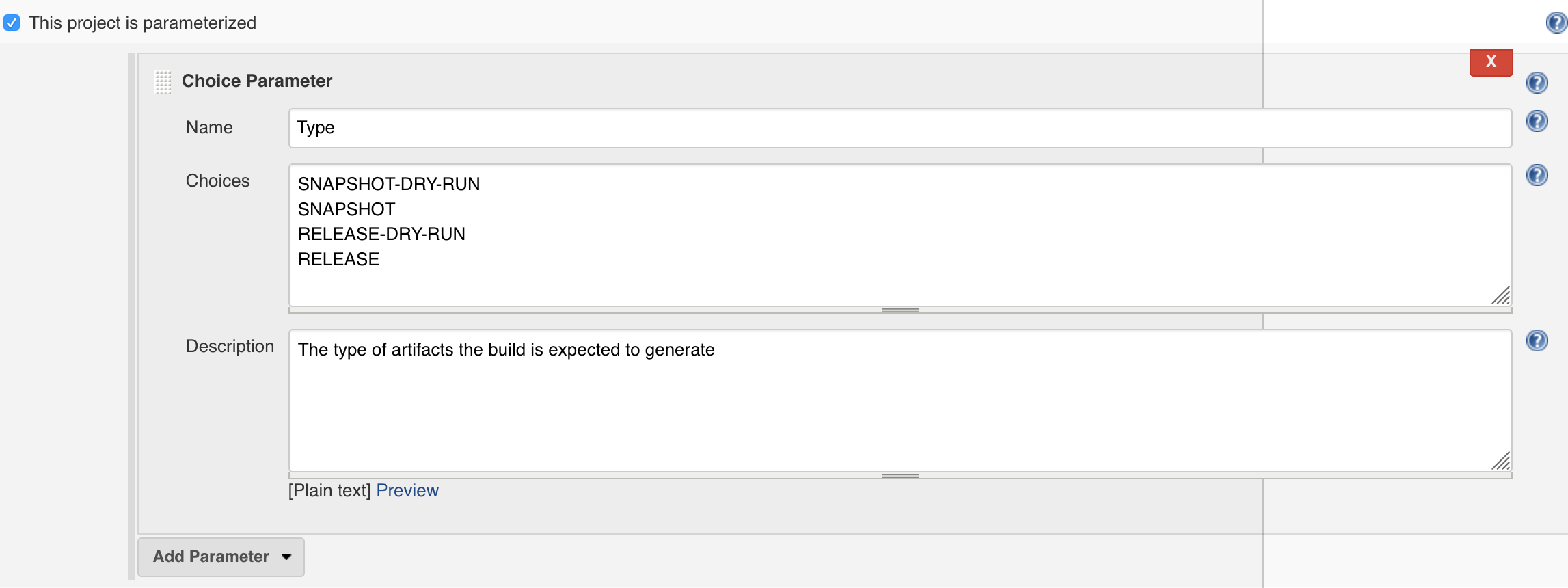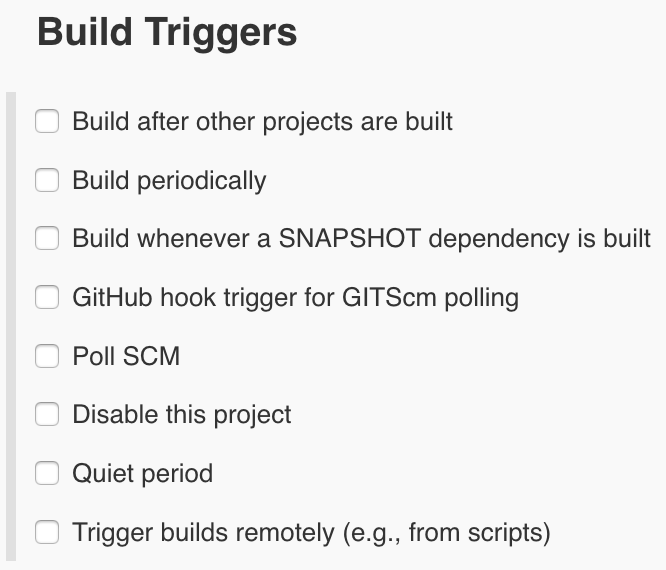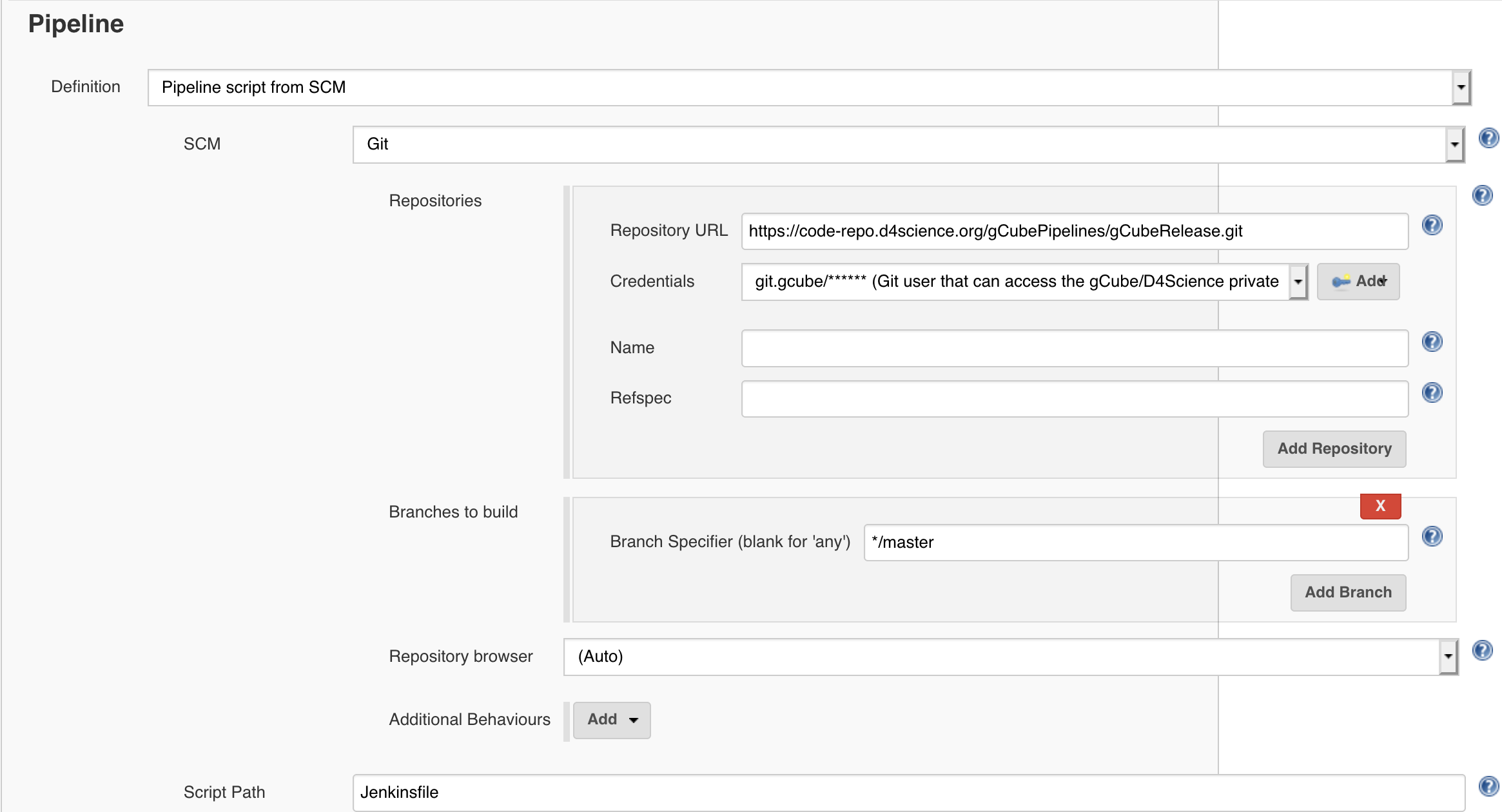Difference between revisions of "Continuous Integration: Releases Jenkins Pipeline"
From Gcube Wiki
Manuele.simi (Talk | contribs) (→Triggers) |
Manuele.simi (Talk | contribs) (→Triggers) |
||
| Line 10: | Line 10: | ||
[[File:Jenkins_pipeline_params.png|800px]] | [[File:Jenkins_pipeline_params.png|800px]] | ||
== Triggers == | == Triggers == | ||
| − | No triggers are defined | + | No triggers are defined because the pipeline is designed to be manually launched by the [[Continuous_Integration:_Releases_Manager|Release Manager]]: |
| + | |||
[[File:Jenkins_pipeline_triggers.png|400px]] | [[File:Jenkins_pipeline_triggers.png|400px]] | ||
Revision as of 17:11, 29 May 2019
Jenkins Pipeline
Jenkins Pipeline is a combination of plugins that support the integration and implementation of continuous delivery pipelines using Jenkins. A pipeline has an extensible automation server for creating simple or complex delivery pipelines "as code," via pipeline DSL (Domain-specific Language).
In gCube we use a Pipeline to trigger the builds of jobs forming a gCube Release. The pipeline project is available at: https://jenkins.d4science.org/job/gCube-Release/
Parameters
Triggers
No triggers are defined because the pipeline is designed to be manually launched by the Release Manager:
Git
Jenkins Pipeline Definition
Back to the CI guide.


